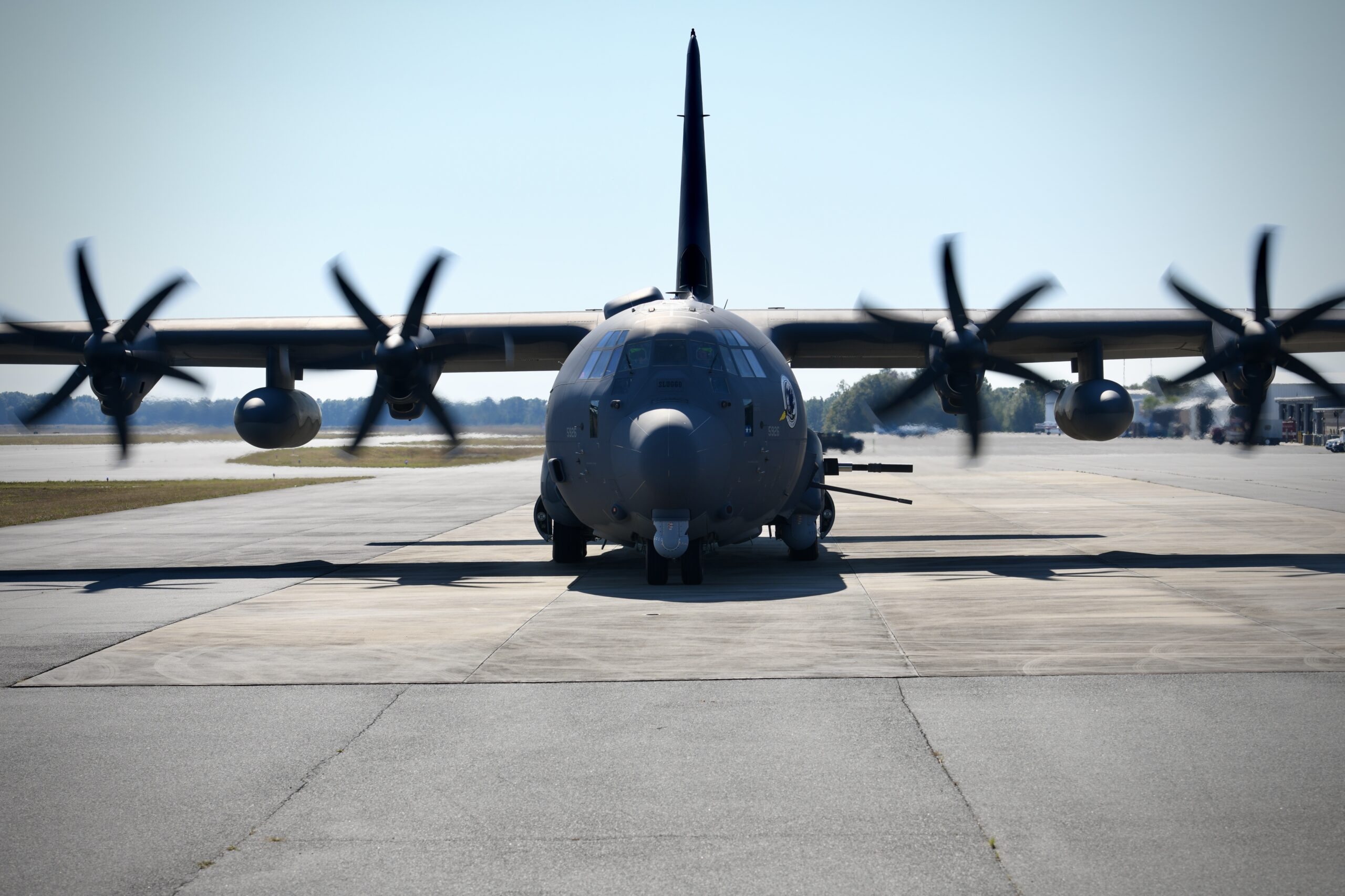
HURLBURT FIELD, Fla. —
Air Force Special Operations Command received its 31st and final AC-130J Ghostrider, completing the command’s transition from the legacy AC-130W, AC-130U and AC-130H fleets.
Following a commemoration ceremony at the Lockheed Martin Gunship Modification Facility in Crestview Nov. 2, the final AC-130J was delivered to the 27th Special Operations Wing at Cannon Air Force Base, N.M.
During the AC-130J Ghostrider Dedication and Delivery Ceremony, Lt. Col. Joe Allen, Gunship Program manager and narrator for the event, briefly discussed the history of nose art and how it became a common way of depicting the name of an airplane. He also explained how pilots would stencil names or call signs on their aircraft, providing a sense of connection and further a feeling of pride for themselves and the crew that kept the airplane flying.
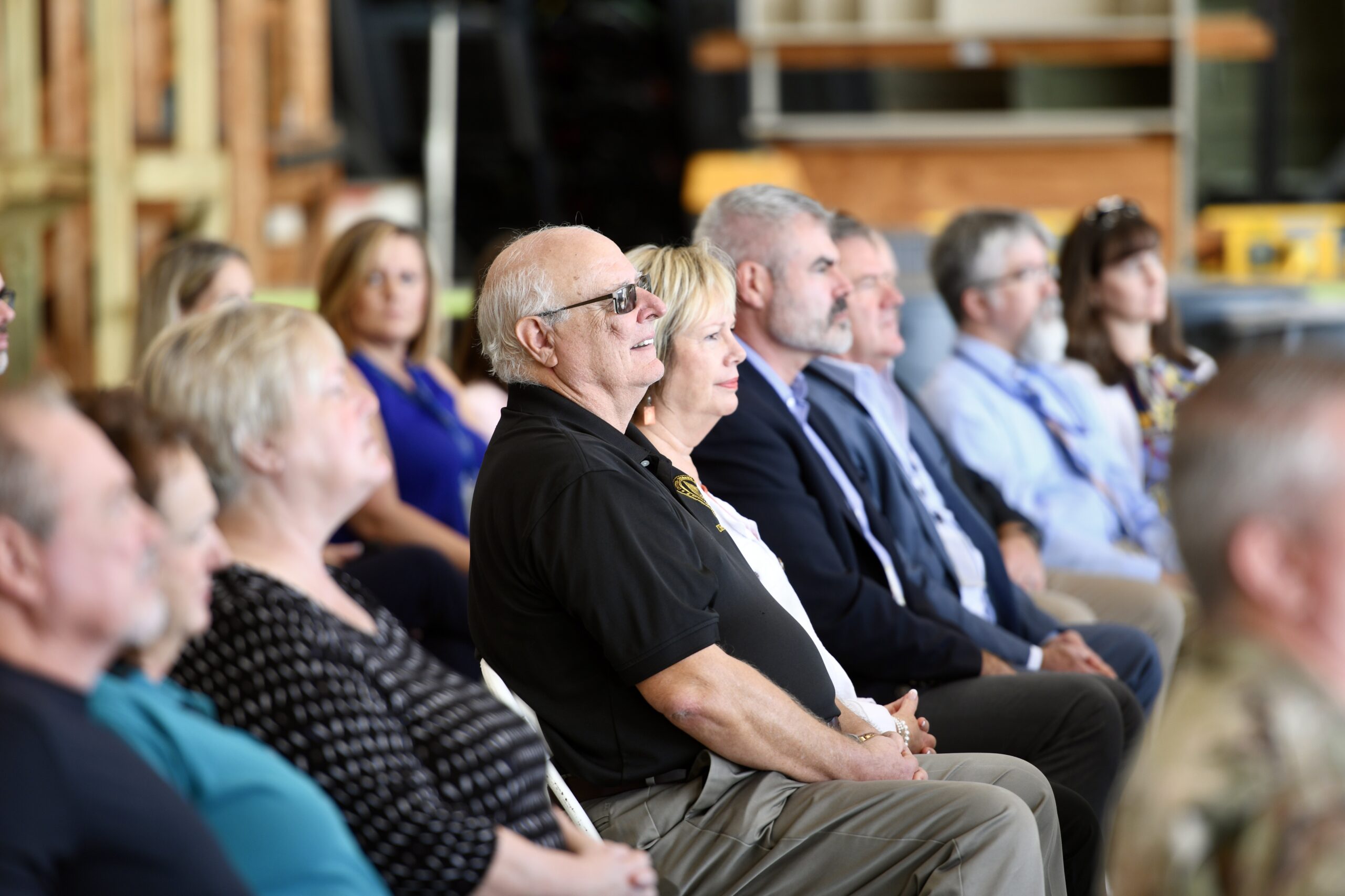
“Aircraft #31 is no different [than previous World War II aircraft] and is being named in honor of Mr. Stan ‘Sluggo’ Siefke who was instrumental in the developments of the precision strike package prior to cutting first metal on the MC-130W,” said Allen. “Sluggo’s impacts on Whiskey and Ghostrider have been nothing short of outstanding and we are honored to have him in attendance today.”
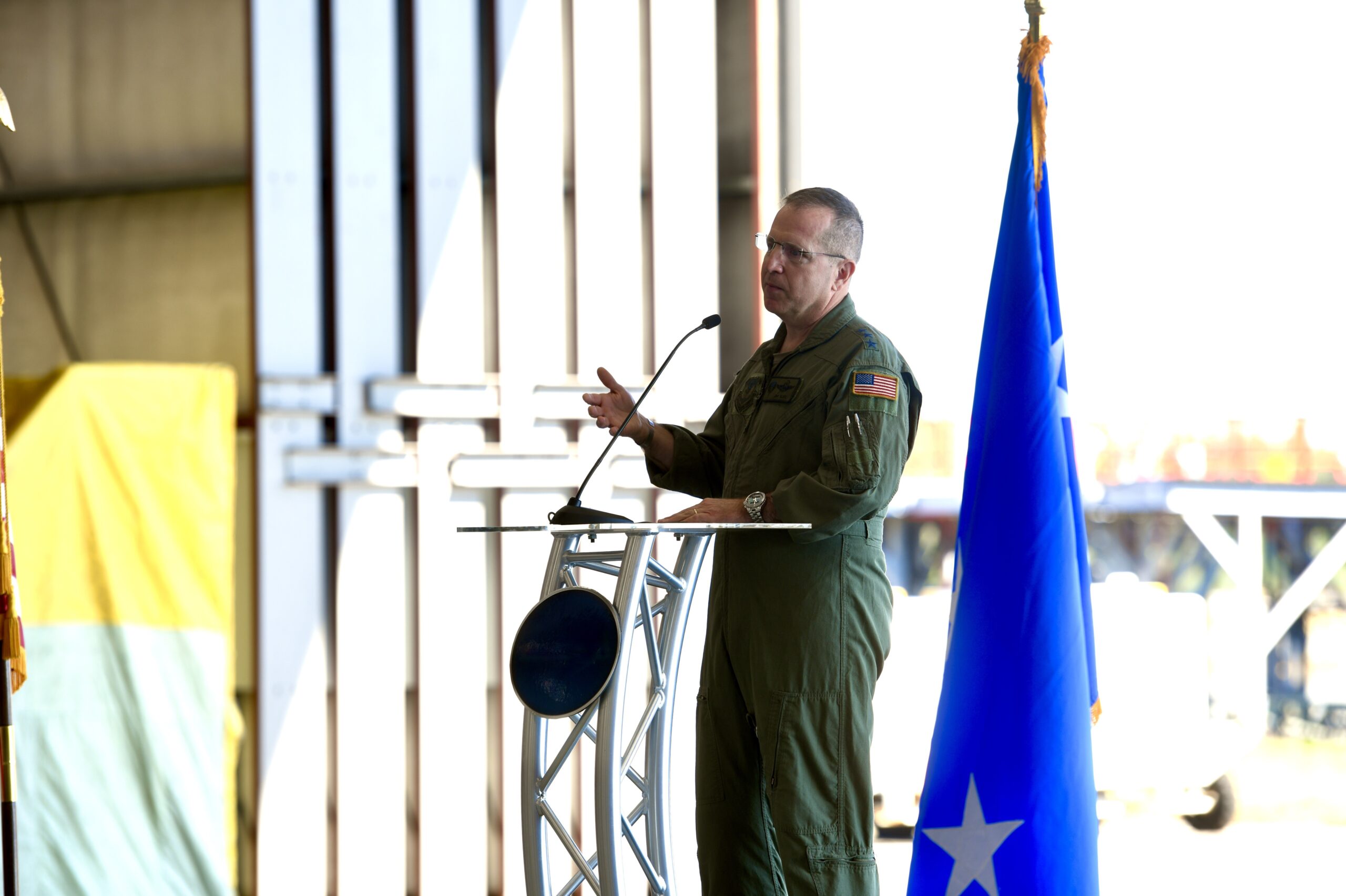
Lt. Gen. Jim Slife, AFSOC Commander, represented the command at the ceremony and spoke about his experience with acquiring and receiving the AC-130J.
Slife recalled that it had been “only a few years back,” when then Col. Slife working at the Pentagon for the Office of Secretary of Defense, began the messaging and formative language that initiated the program that he’s seeing come full circle.
“In the fall of 2009, the Secretary of Defense decided to recapitalize [the AC-130] with C-130Js to build the platforms we see behind us today,” said Slife.
He also spoke about seeing the first J model go into combat in the summer of 2019 while serving as the AFSOC commander.
“The airplane and its predecessors have exceeded all our expectations and kept more Americans alive than any other airplane on the battlefield,” said Slife.
“The future is going to be different than what we have experienced for the last 20 years, but one thing I’m certain of is this airplane will be relevant to whatever the future operating environment brings, so thank you all for delivering such a magnificent capability to today’s warfighters,” he said.
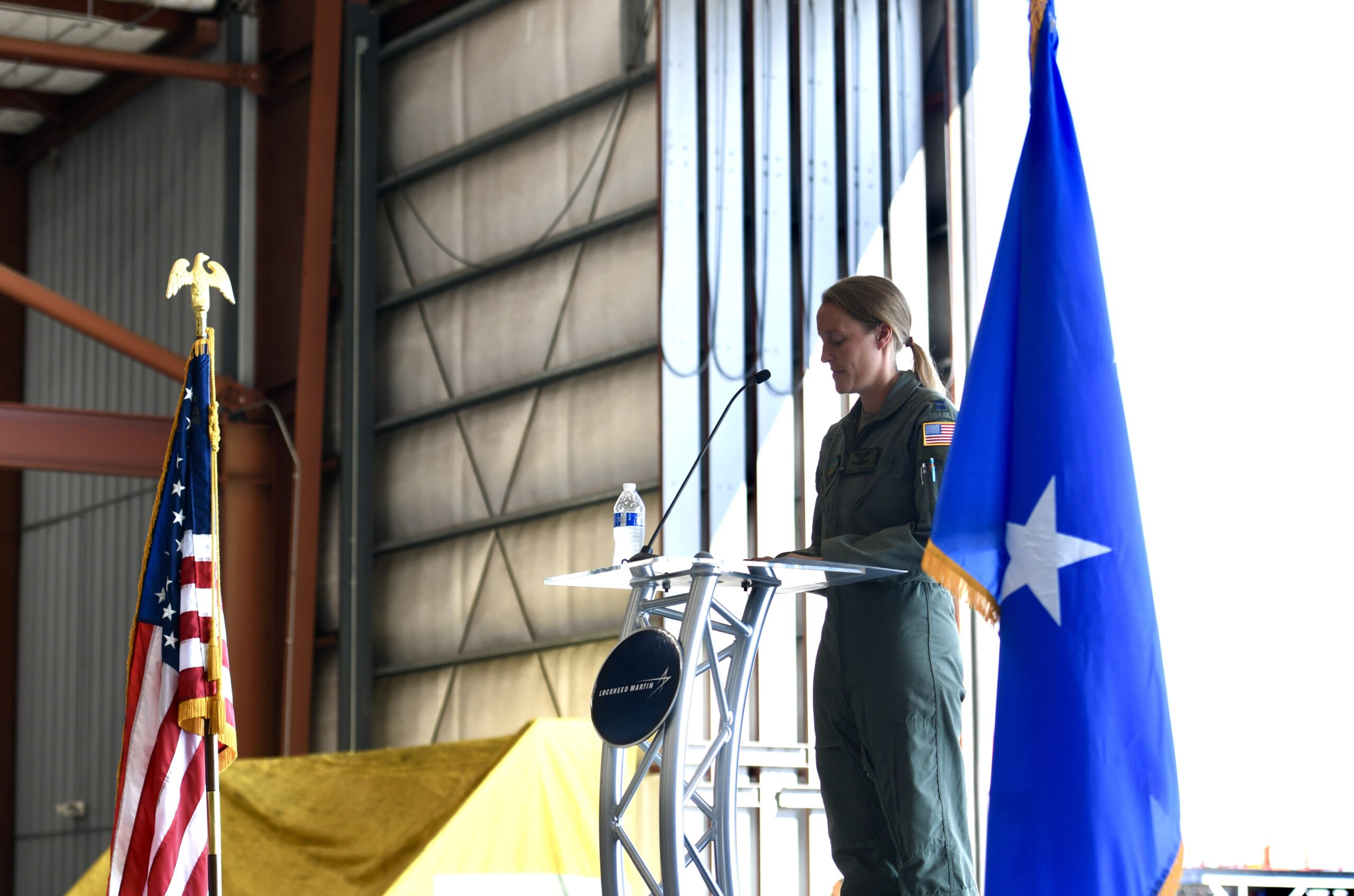
Capt. Katie Tiedemann, 73rd Special Operations Squadron Weapons Systems Officer, shared operational vignettes of the AC-130J during the event. She specifically shared her own experience deployed in Afghanistan when she supported Operation Allies Refuge.
“Over two weeks, my own crew, and two others, continued to employ our aircraft for countless hours, reopening the [Kabul] airport and evacuating 123,000 refugees,” said Tiedemann. “Much of the rest of the story you have seen and heard, but our two crews who flew during the evacuation will be recognized this fall with the MacKay trophy for accomplishing the most meritorious flight of the year.”
Following Capt. Tiedemann’s presentation, William Innes, Deputy Director for Acquisition, United States Special Operations Command, spoke about USSOCOM’s part in navigating the acquisitions process to get the weapons systems from industry to the warfighter.
“When we can see firsthand that it [the acquisition process] works, it delivers the best weapons system the nation can get, it is truly inspirational,” he said.
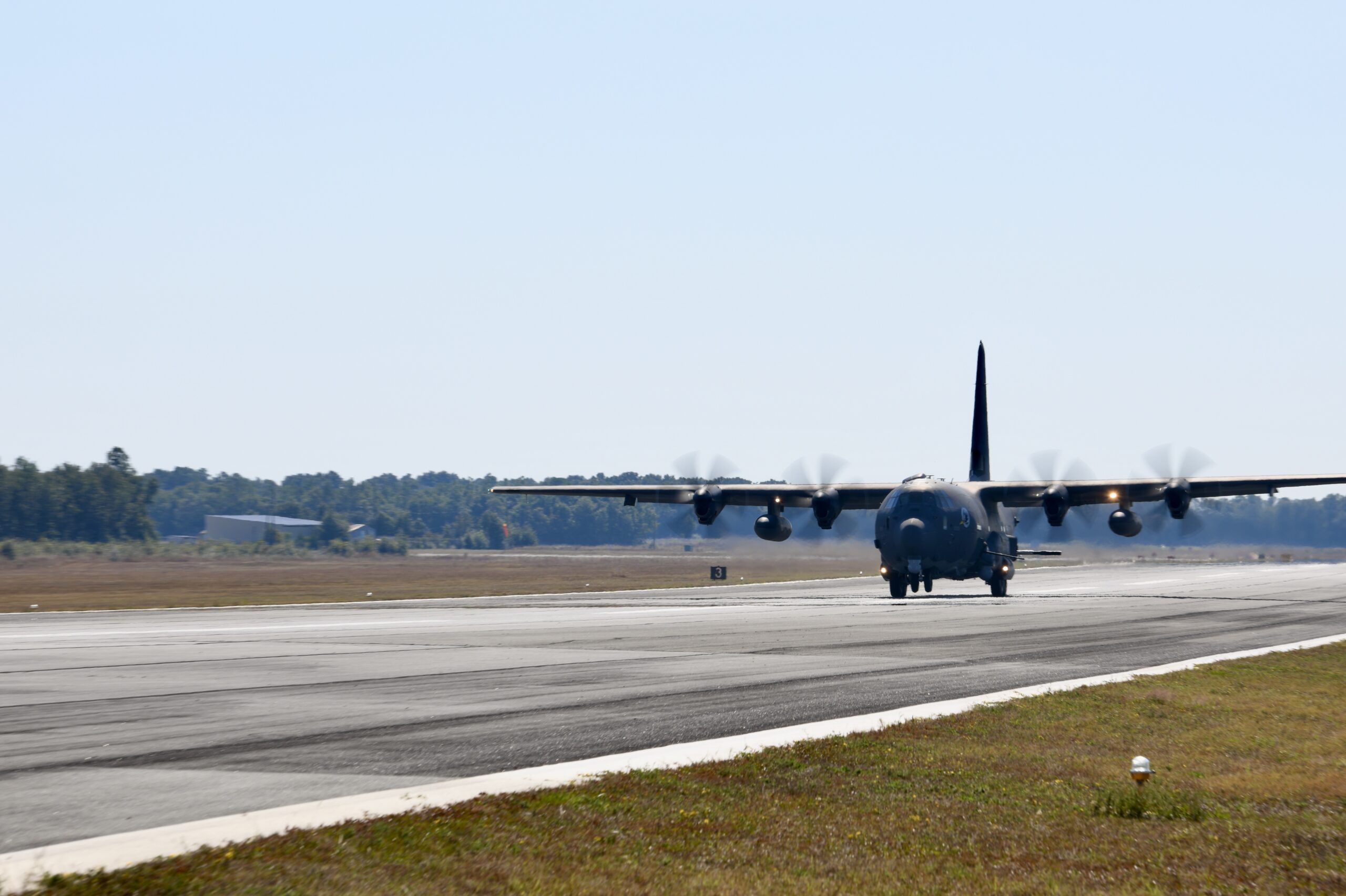
Vic Torla, Lockheed Martin Vice President of Special Operations Forces Global Logistics Support Services, expressed his gratitude for the partnership between Lockheed Martin and the Air Force.
“A great example of a government and industry partnership to stand up this facility,” said Torla. “A ten-year journey to deliver what is now 30 combat capable aircraft to Special Operations Command.”
At the conclusion of the ceremony, Gen. Slife along with aircrew stepped onto the new AC-130J and took off for Cannon Air Force Base, N.M., where the final AC-130J will become part of the 27th Special Operations Wing.
He concluded with his gratitude for all who contributed to making the AC-130J the success it is today.
“For the whole team today, for the team that maintained the airplane, that built the airplane, that acquired the airplane, that fly the airplane, that tested the airplane, thank you for what you’ve done.”
The AC-130J is a transport aircraft modified for special forces operations and has been used to support AFSOC in missions around the world. It is a fifth-generation gunship that can provide close air support, air interdiction and armed reconnaissance.
By Capt Alicia Premo
Air Force Special Operations Command


It has been amazing to be on this modification team. Only 10 of us modifiers made it through from day one to of the first Ghostrider aircraft to the final day of modification and we gave the Air Force their 31st Ghostrider. We took a lot of pride in making the most feared aircraft in the world. Long live the AC-130J Ghostrider.